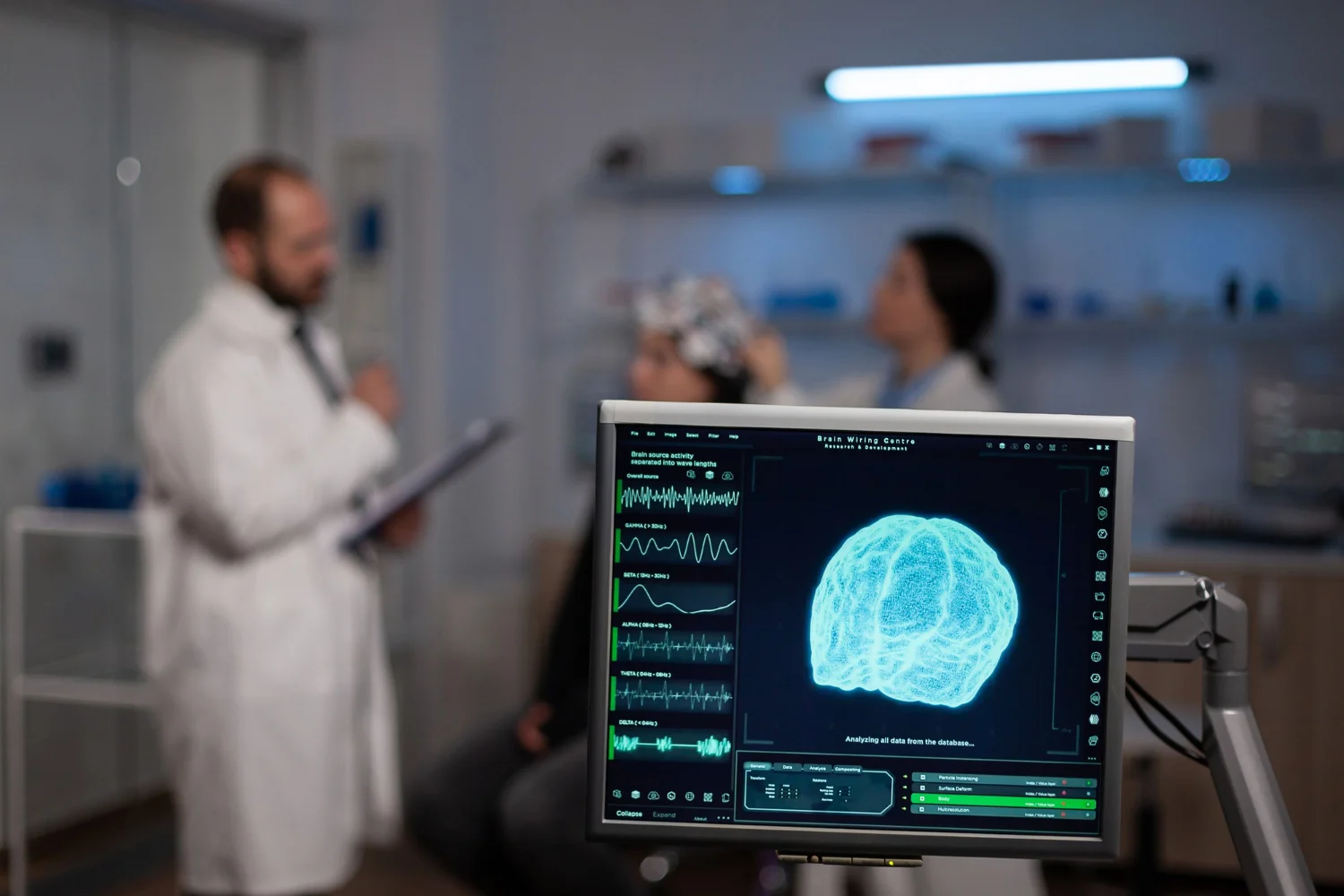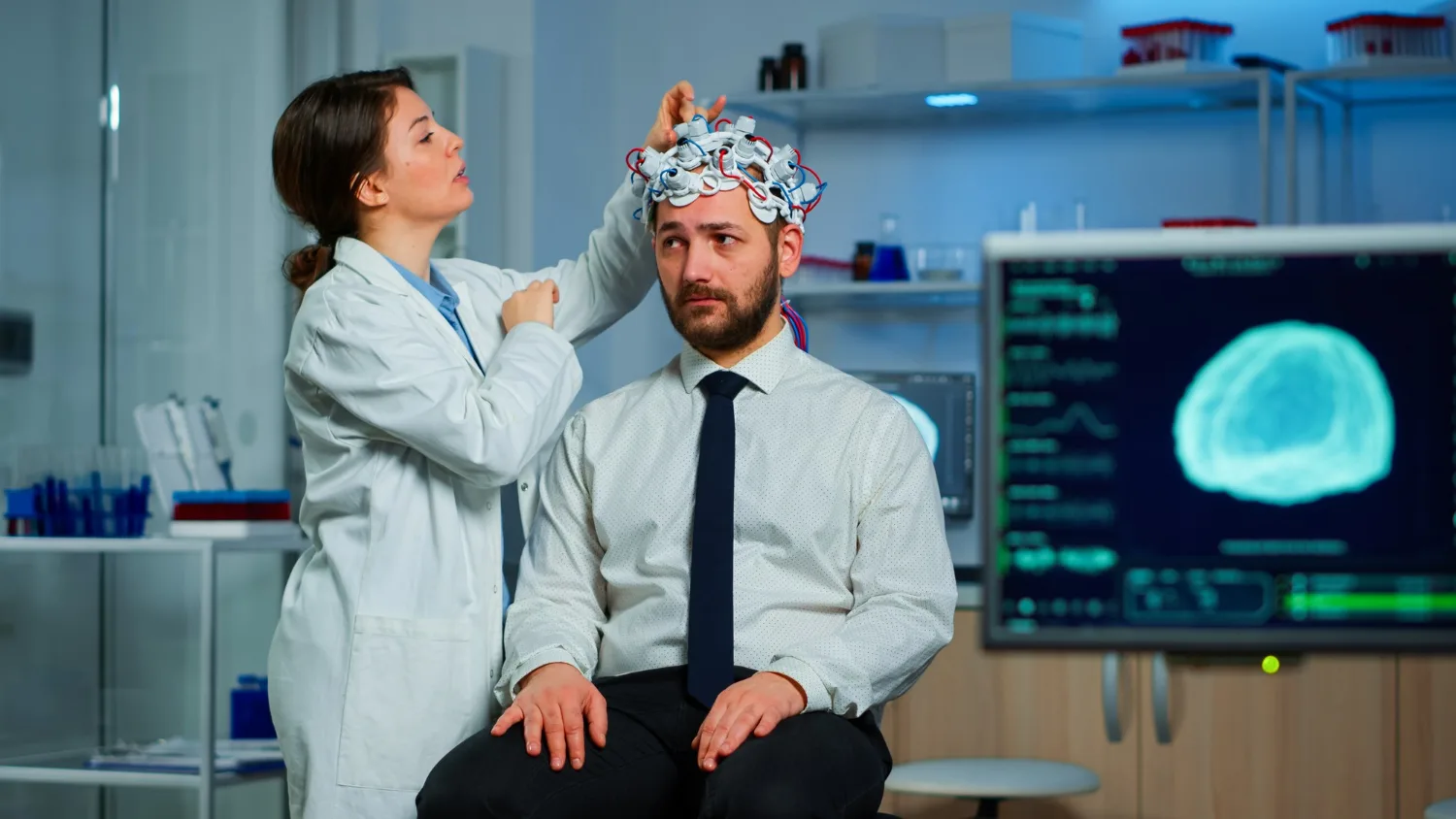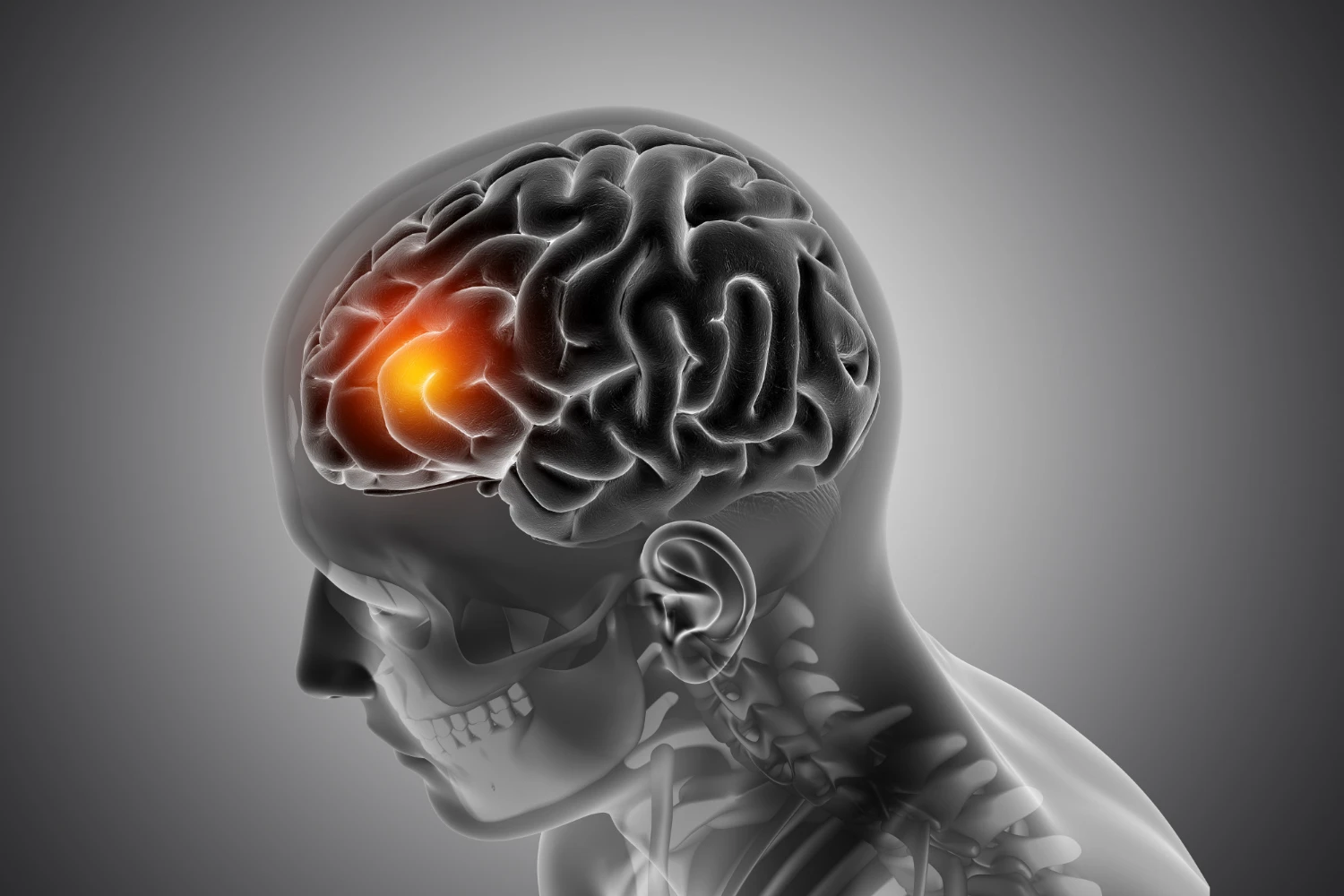What Causes Epilepsy?
Category: Neurology
Epilepsy is a neurological disorder characterized by recurring seizures due to abnormal brain activity. While common, its causes are often misunderstood—ranging from head injuries and infections to brain malformations and strokes, not just genetics.
If you or a loved one experiences seizures, early diagnosis is crucial. Lokmanya Hospitals, one of the best neurology hospitals in Pune, offers expert care with advanced diagnostics and personalized treatment. At our Neurology Department, experienced specialists work together to identify the cause and provide effective, timely care.
What Causes Epilepsy?
Epilepsy can have multiple causes, and in some cases, the reason remains unknown—this is referred to as idiopathic epilepsy. However, in the majority of cases, epilepsy is linked to identifiable structural or functional abnormalities in the brain.
Let’s explore the primary causes of epilepsy in detail:
1. Genetic Factors
Some individuals are born with genetic mutations that make them more susceptible to seizures. This is especially common in generalized epilepsy, where seizures affect the entire brain from the beginning. Genetic epilepsy is usually present in childhood or adolescence.
- Most Searched Question: Is epilepsy hereditary?
→ Yes, certain forms of epilepsy have a genetic basis, especially when there's a family history of seizures.
2. Brain Trauma or Head Injury
Traumatic brain injuries (TBIs) from accidents, falls, or assaults can lead to epilepsy, often months or even years later. TBIs disturb the brain's normal electrical circuits, creating a trigger point for seizures.
- Relevant Search Query: Can head injury cause epilepsy?
→ Yes, post-traumatic epilepsy is a well-documented condition, particularly in severe or penetrating injuries.
3. Stroke and Vascular Disorders
Strokes and other cerebrovascular conditions that reduce oxygen supply to the brain can damage neural tissues and cause seizures. This is one of the leading causes of epilepsy in older adults.
4. Brain Tumors and Cysts
Abnormal growths like tumors, cysts, or even brain abscesses can interfere with electrical activity in the brain. Seizures are often one of the first warning signs of an undiagnosed brain tumor.
- Related Search: Can brain tumors cause epilepsy?
→ Yes, both benign and malignant tumors can lead to focal seizures.
5. Infections of the Brain
Infections such as meningitis, encephalitis, and neurocysticercosis (a parasitic brain infection) can trigger seizures during or after the illness.
Important Note: This is especially common in tropical regions like India, making early diagnosis crucial.
6. Birth Injuries and Developmental Disorders
Children who suffer oxygen deprivation during birth or have congenital brain malformations are at higher risk for developing epilepsy early in life. Conditions like cerebral palsy, autism, and Down syndrome are often linked to seizures.
- Most Searched Query: Can a baby be born with epilepsy?
→ Yes, neonatal brain injuries or abnormalities can lead to epilepsy.
7. Metabolic and Autoimmune Conditions
Certain metabolic disorders such as hypoglycemia, electrolyte imbalance, or autoimmune encephalitis can disturb brain activity and lead to seizures. These conditions are often reversible if treated early.
When Does Epilepsy Usually Begin?
Epilepsy can begin at any age, though it’s most commonly diagnosed in:
- Children under 10 (due to genetic or birth-related factors)
- Adults over 60 (due to strokes, dementia, or brain injuries)
Understanding the cause of epilepsy helps in deciding the most effective treatment method—whether through medications, surgery, or lifestyle adjustments.
What Increases the Risk of Developing Epilepsy?
Certain lifestyle or environmental factors can raise the risk of developing epilepsy:
- Alcohol or drug abuse
- Lack of sleep
- Prolonged fever in children
- Poorly managed chronic diseases (e.g., diabetes, hypertension)
- Delayed treatment of infections or head injuries
Early intervention plays a pivotal role in preventing long-term complications. The best hospitals for emergency and critical care services like Lokmanya can make a life-saving difference with immediate response protocols and neurologist access 24/7.
Why Choose Lokmanya Hospitals for Epilepsy Care?
Lokmanya Hospitals is renowned for its excellence in neurology and neurosurgical care. From accurate EEG and MRI diagnostics to comprehensive seizure monitoring units, we follow global best practices to diagnose and treat epilepsy. Each case is reviewed by a panel of top neurologists in India, ensuring nothing is overlooked.
As one of the best neurology hospitals in Pune, Lokmanya not only offers top-tier infrastructure but also personalized care plans based on the root cause of the patient’s condition. Whether your epilepsy is genetic, traumatic, or infection-induced, our experts are equipped to guide you toward a seizure-free life.
Conclusion
Epilepsy is a complex neurological condition with a wide range of causes—some inherited, others acquired through trauma, infection, or stroke. Understanding the root cause is the first step toward effective treatment and a better quality of life. At Lokmanya Hospitals, our expert neurologists combine advanced diagnostic tools with a patient-centric approach to deliver accurate diagnoses and personalized care. Whether you're seeking clarity, management strategies, or advanced treatments, Lokmanya stands as one of the best neurology treatment hospital in Pune, committed to guiding you every step of the way on your journey toward seizure control and improved neurological health.
FAQs
Q1. What is the most common cause of epilepsy?
In children, genetic and developmental disorders are common causes. In adults, stroke and head trauma are leading causes.
Q2. Can epilepsy develop later in life?
Yes, epilepsy can occur at any age. It is especially common in seniors due to strokes or neurodegeneration.
Q3. Can epilepsy be caused by stress?
Stress doesn’t directly cause epilepsy, but it can trigger seizures in those already diagnosed.
Q4. Is epilepsy always permanent?
Not necessarily. Some forms of epilepsy, especially those caused by infections or reversible metabolic issues, can be resolved with treatment.
Q5. How can Lokmanya Hospitals help in diagnosis?
Lokmanya’s Neurology Department is equipped with advanced tools like EEG, neuroimaging, and neuropsychology assessments to diagnose epilepsy accurately and identify the cause.

Previous blog

What Is Brain Tumor?
Next blog






